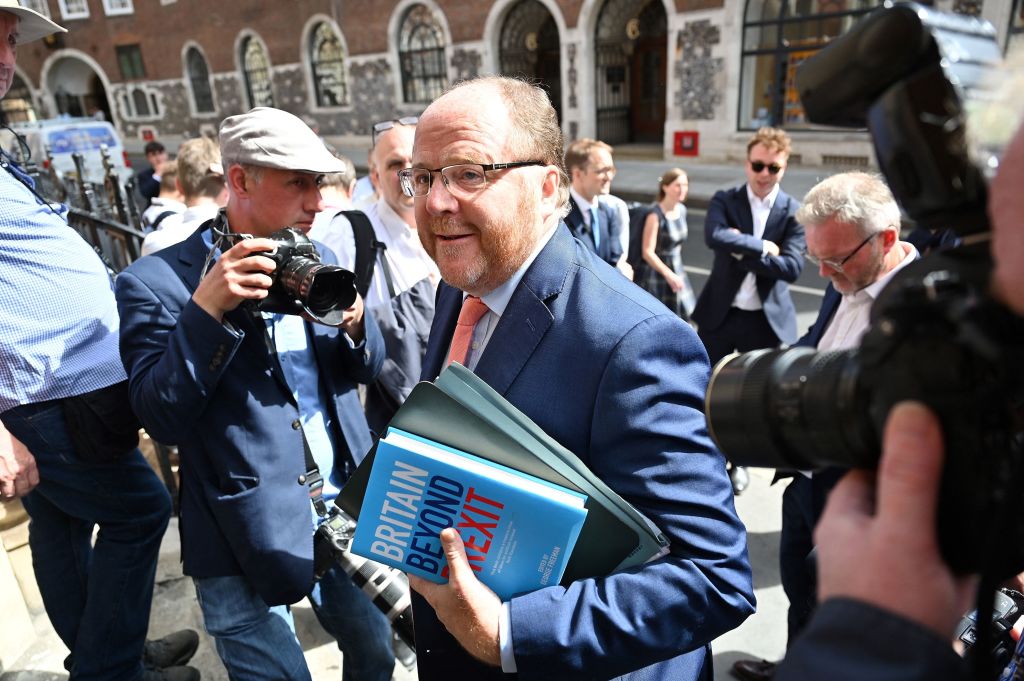- Thursday, April 24, 2025
George Freeman will make the case for the UK’s burgeoning role as a global science superpower harnessing science for global good at the G20 research meeting.

By: Shubham Ghosh
GEORGE Freeman, UK minister of state for science, research and innovation, was set to visit India for four days starting Tuesday (4) to take part in the G20 research ministers’ meeting which eyes to bolster the strong and growing science technology partnership between the UK and India.
During his visit, Freeman will use the G20 forum to reassert his country’s commitment to open science as a cornerstone of the rules-based international order, and the means by which science and innovation can fairly and justly be brought to bear on the biggest challenges the world is facing today — from climate change and sustainable development to health threats, the department for science, innovation and technology (DSIT) said in a press release.
The minister will also highlight the importance of diverse and inclusive international collaboration on science and technology to ensure driving of innovations that positively impact lives and sustain economic growth for global good.
At the G20 meeting, Freeman will also emphasise the need for rapid, equitable progress against shared global challenges such as Antimicrobial Resistance (AMR), climate change and the transition to Net Zero.
“The UK is committed to unlocking solutions to these global challenges, which is why we continue to invest in R&D with like-minded international partners, such as India, and why there is the need for greater multilateral and bilateral collaborations on science and technology,” the DSIT release said.
During his visit, Freeman will meet his Indian counterpart Jitendra Singh to emphasise the value that the UK places on the UK-India research and innovation partnership, reflected by the recent landmark success of the UK-India Science and Innovation Council.
He will also meet Indian biotech leaders Cyrus Poonawalla and Adar Poonawalla at the Serum Institute of India (SII), a world-class facility that produces 70 per cent of the world’s vaccines, in the western city of Pune.
The unprecedented pace of collaborative work between the Serum Institute, Oxford University, and AstraZeneca to deliver a life-saving vaccine for Covid-19 is a prime example of the world-leading work the UK and India’s science and technology partnership is capable of achieving, said the DSIT.
In a further deepening cooperation and connectivity between the two nations, the UK minister will announce the fourth phase of the UK-India Education and Research Initiative (UKERI) at Pune’s Indian Institute of Science Education and Research.
Delivered by the British Council, UKIERI will help to develop the next generation of talented researchers in both countries. It will catalyse high-quality, international collaborative research, bringing together wide-ranging disciplines such as STEM, behavioural sciences, anthropology and social sciences to take a 360-degree approach to solving global challenges.
Freeman will also visit India’s information technology capital Bengaluru to launch a raft of partnerships to expand the ‘living bridge’ between both countries and further cement both the UK and India’s burgeoning status as science superpowers. He will officially launch the UK-India Net Zero Innovation Centre at the Indian Institute of Science in the city. The centre is a unique coalition of UK and Indian innovation policymakers, R&D companies, start-ups, hubs and places, investors, research groups and catapults.
The same day, he will also launch the UK-India hydrogen sprint. Tata Steel will be the first sponsor of the HyPartnerships sprint series, awarding £80,000 funding to researchers and innovators in both countries to develop low carbon hydrogen technologies that will support greener industry in India as well as developing technologies for improved hydrogen fuel cell performance.
In Bengaluru, Freeman will also see how digital 3D scanning technology is being used to preserve some of India’s most historic heritage assets, thanks to work by the newly-established UK-India Science for Heritage partnership.
“The UK and India are uniquely placed to work together, to harness the power of science in tackling some of the world’s biggest challenges, from Net Zero to biosecurity, doubling world food production and defending the principles of open science in an increasingly competitive science and technology world – all of which we will rightly focus on at the G20, this week. Our shared strengths in innovation, research and development are perfectly complemented by our deep trading and cultural links, and shared democratic values,” Freeman said.
“Following the landmark science partnership we agreed in April, we are defending our shared work in key areas of collaboration: from the development of clean air technologies, agricultural research and agritech, to digital health and joint R&D work that’s making our leading industries more sustainable. Our world-class science and research collaboration is growing the sectors, jobs and companies of tomorrow, in both the UK and India, and delivering on the prime minister’s (Rishi Sunak) five priorities.”
Alex Ellis, British high commissioner to India, said, “The science, research, and technology partnership between the UK and India makes our two countries and the world better. Through the 2030 UK/India Roadmap, and multilateral fora like the G20, our countries are improving health, well-being and prosperity for all.”